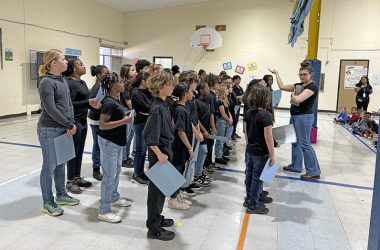Change is hard for both the Illinois Legislature and Illinois’ schools, says Rep. Will Davis, D-Homewood.
Even though research shows Illinois is not putting adequate resources into its schools, the Legislature hasn’t found a viable way to improve funding.

As the state’s game of governmental chicken drags on – Illinois has not had a budget for eight months – funding for its schools has continued. Funding for K-12 education was the only part of last spring’s budget bill Gov. Bruce Rauner agreed to sign, and it had slight increases in some areas.
Despite numerous efforts to work through school funding issues, there is little to show for it. Any proposal for change could mean a loss of revenue, so many school districts don’t want change, argues Davis.
The seven-term Democratic representative recently met for an hour-long interview with the Homewood-Flossmoor Chronicle and answered a wide range of questions on school funding.
As chair of the House K-12 Appropriations Committee, Davis continues to work for a solution to school funding woes in a state where the norm is increasingly “have” schools in affluent communities and “have-not” schools in impoverished areas.
Davis, a Homewood resident, is also a member of a group meeting with the Center for Tax and Budget Accountability working to craft a comprehensive bill building on elements of Senate Bill 1, a comprehensive education reform bill.
Elements of that bill, first proposed two years ago by Sen. Andy Manar, D-Bunker Hill, would require school districts with larger financial reserves to pay more toward teacher pensions and other expenses. Manar and supporters of SB 1 are moving forward with their plans in the Legislature but Davis said he doesn’t think the legislation will be ready for passage during current the Statehouse session.
At a recent committee meeting, Davis said he made it clear he has “no challenge” with introducing resources – the dollars and cents going to local districts – into the conversation on school funding reform.
“If that’s what it’s going to take in addition to the other things folks want, like accountability, relief from mandates, I have no problem with that.”
“We should be doing more statewide, so there’s going to be a need for resources,” not necessarily by moving money around but finding additional resources, but he knows not all legislators are on board with the idea.
Davis said whenever school funding is discussed, it is clear that “people are comfortable, for lack of a better way of putting it.”
“When we start talking about shifting (funding), it automatically becomes a conversation of winners and losers. Many of the people who are currently winners will tell you the formula’s bad, it needs to be changed; there are so many inherent problems with it.
“But when you start talking about those changes you start talking about shifting. That means that districts like those are going to lose money (as we) try and bring up other districts. The moment it becomes winners and losers conversations, we never get anywhere,” he lamented.
The proposal from the group meeting with the Center for Tax and Budget Accountability “would actually have new money, because if (we’re) shifting we’re just having the same conversation. It’s recognition that there needs to be more money made available for that purpose.
“I have no problems when I talk about new revenue and some things that go along with it, but if I can agree to those things, like accountability, (Republicans) have got to agree and be willing to put more money into it. They really don’t want to because politically that’s not good for them,” Davis argues.
“They say one thing but we wind up doing another thing. At the end of the day, that’s why I used the word comfortable. Those districts are comfortable with where things are, and they don’t want to see those dollars move around to try and provide any additional help to the school districts that don’t have what they have.
“In the small group (with the Center for Tax and Budget Accountability) meeting we’re kind of looking at the whole package.”
Rauner has said he’s committed to an increase in education funding, but Davis said although he knows there is a Republican proposal for schools, he hasn’t been privy to it.
“As appropriations chair it could come to my committee possibly,” he pointed out, “so help me understand what it is and let me wrap my mind around it. Whatever that is.”
Davis said trying to find new school revenues without new dollars could mean cuts in other areas of the budget. Ultimately, any budget cuts are likely to have an impact somewhere in Illinois.
Tom Houlihan contributed to this story.


